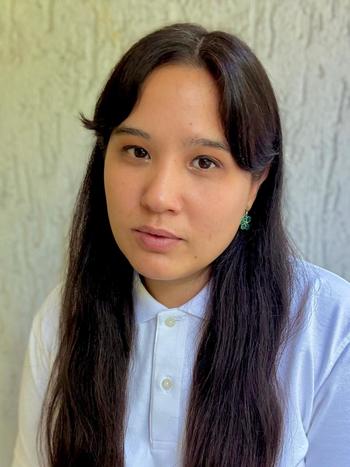Justina Lee

International Research Training Group 'Temporalities of Future in Latin America'
PhD Candidate
Economics
Project: "The History of Latin American Feminist Economics. A contribution to the History of Economic Thought from the Periphery"
14195 Berlin
Education
|
Since 10/2025 |
Associated PhD Candidate, International Research Training Group ‘Temporalities of Future’ |
|
Since 04/2025 |
PhD Candidate in Economics, Latinamerican Institute, Freie Universität Berlin |
|
10/2022 – 03/2025 |
M.A. in Interdisciplinary Latin American Studies, Freie Universität Berlin Focus: Economics, Sociology, Political Science |
|
04/2019 – 02/2022 |
B.A. in Economics, Hochschule für Wirtschaft und Recht Berlin |
Work Experience
|
Since 10/2025 |
Associated researcher, International Research Training Group ‘Temporalities of Future’ |
|
Since 04/2025 |
Researcher in Economics, Latin American Institute, Freie Universität Berlin |
|
Since 01/2020 |
Director, Asociación Civil Economía Feminista (Ecofeminita) Role: Project coordination, public speaking, data analysis, research, publications |
|
09/2022 – 08/2025 |
Student Research Assistant, DEPRISK Project, LAI-Freie Universität Berlin |
|
12/2017 – 12/2019 |
Research Associate, Asociación Civil Economía Feminista (Ecofeminita) |
|
08/2018, 08/2019, 08/2021 |
Lecturer, Summer School for Pluralist Economics, Netzwerk Plurale Ökonomik Role: Workshop instructor on Feminist Economics |
|
02/2017 – 07/2017 |
Assistant, Fundación para el Estudio e Investigación de la Mujer (FEIM) |
PhD-Project: "The History of Latin American Feminist Economics. A contribution to the History of Economic Thought from the Periphery"
Supervisor: Barbara Fritz, Freie Universität Berlin
This doctoral research seeks to construct a comprehensive historiography of Latin American Feminist Economics (LAFE), a subfield that has significantly contributed to rethinking economic theories from a feminist perspective within the Latin American context. As a critical framework, it addresses the region’s unique economic realities, challenging dominant Western-centric paradigms by foregrounding issues of social justice, inclusivity, and sustainability. LAFE also diverges both from Latin American Structuralism and from the feminist economic academic production from central countries (Central Feminist Economics).
Through a mixed-methodology approach, this study will map the evolution of LAFE from 1970 to 2023, employing bibliometric methods and topic modeling (BERTopic), conducting interviews with key Latin American feminist economists, and examining documents from feminist economic conferences that reflect the role of social movements in shaping the field.
A central objective is to explore the intersections, tensions, and synergies between LAFE, Latin American Structuralism, and Central Feminist Economics, clarifying how LAFE critiques, builds upon, and differentiates itself from these traditions.


